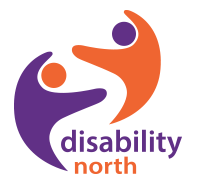Disabled people are beginning to raise grave concerns about the potential impact of coronavirus on people with long-term health conditions and high support needs, particularly those who employ their own personal assistants.
The Department of Health and Social Care (DHSC) published its action plan on dealing with COVID-19 this week, but the document said little about social care.
Health and social care secretary Matt Hancock said: “Protecting the most vulnerable is our absolute priority.”
He added: “We all have a role to play in combatting this threat and I urge everyone to take stock of the simple methods that offer the best protection.
“Right now, this means making sure you are washing your hands properly and regularly and always following the most current public health and travel advice as it develops.”
The government said it was currently focusing on containing the spread of the virus.
But the action plan says that if the virus becomes established, the focus will be on providing “essential services, helping those most at risk to access the right treatment”.
DHSC said yesterday (Wednesday) that it would publish guidance for the care sector “shortly”, but there are concerns that this could focus on the care industry and residential homes rather than disabled people who employ their own personal assistants (PAs).
The Local Government Association said this week that councils were working alongside Public Health England, the NHS and other organisations to “assess risk, provide advice to communities and try to prevent this virus spreading further” and that local plans were “in place for every eventuality, including a pandemic”.
Few if any disabled people’s organisations (DPOs) have spoken out yet about the impact of COVID-19.
But some disabled people and DPOs have begun to express concerns.
Disability Rights UK (DR UK) is one of the first DPOs to speak out.
Kamran Mallick, DR UK’s chief executive, told Disability News Service (DNS) that disabled people should not be seen as “inevitable cannon fodder in the face of COVID-19” when it was those with underlying health conditions who appear to be “bearing the brunt of the worst effects of this illness”.
He said DR UK was seeking evidence that hospitals would be able to cope with “the most vulnerable cases in the event of mass infection”.
He added: “Our lives matter as much as the next person’s.”
Mallick called on the government to make extra funding available in next week’s budget “to allow for the extra social care that would inevitably be needed for disabled people should an epidemic take hold”, in addition to the “desperately needed” funding the social care system already needed.
He also warned that “self-isolation” in the event of infection with the virus was not as easy for many disabled people as it might be for non-disabled people.
He said: “We would ask that those responsible for planning in social care and hospitals understand and provide for the fact that, if self-isolating, not everybody can be alone.”
He said adequate provision would be needed for those who cannot self-isolate alone, including those who need full-time assistance, support with eating, drinking and mobilising.
But he also said that people whose immunity was compromised should already be “well-versed in hygiene routines, including asking people with any symptoms of any virus to stay away, and practising good hand-washing hygiene”.
He said: “As far as we can tell at this stage, the same procedures apply for COVID-19.
“We are advising members to watch out for updates in advice from Public Health England and to act accordingly.”
Mark Williams, co-founder of Bristol Reclaiming Independent Living, said: “As a disabled employer, I am concerned about my staff and their capability of supporting me to carry on living independently.
“It is all very well for the government to tell people self-isolate or work from home, but there is no advice for people in my situation and how it might affect them.
“Even at prime minister’s questions this week, when asked about his social care plans, Boris Johnson talked about elderly people being able to keep their homes – nothing about how it would affect working-age disabled people.
“Therefore, why should he think about how coronavirus might affect us?”
Mel Close, chief executive of Disability Equality (NW), said her organisation had begun to receive calls from disabled people concerned about COVID-19.
She said: “We’re trying to be consistent in reassuring them, and are using the NHS guidance/key messages – which we’ve also circulated to staff.”
Access and inclusion expert Sarah Rennie told DNS she had already taken some precautions.
She said: “I have spinal muscular atrophy, so any sort of flu or pneumonia would be life threatening.
“I have cancelled all face-to-face work for the next month (not great financially!) and my care team are taking all infection control precautions.
“However, if any of my PAs (two of whom are teachers with massive social contact levels) come into contact with the virus, how do we effectively self-isolate?
“My PAs come in and out, changing shifts twice a day. Are they expected to care for me if I develop any symptoms of a virus?
“What an expectation for those who are also caring for older parents and small children.
“I’m also aware that I can’t seem to get advice on the point at which I should be hospitalised.
“I’m a level-headed person, only reading advice from reputable sources, but can’t find much advice for people like me.
“This is very worrying, particularly as I have a responsibility as an employer as well.”
Disabled activist Brian Hilton called for “a thought-through response that protects both residents and staff within care homes and other residential settings.
“Similarly, disabled people who live independently with the support of care staff need some reassurance that support will be available if required.”
He called for a government statement on what “support, contingencies and resources” would be available to disabled people if the situation worsened.
5 March 2020. News provided by John Pring at www.disabilitynewsservice.com

